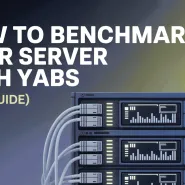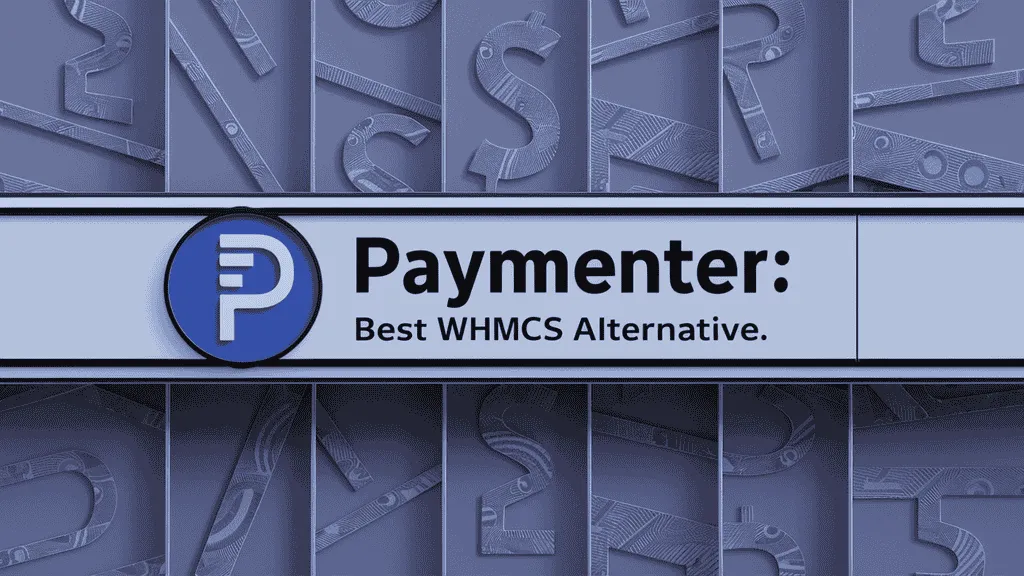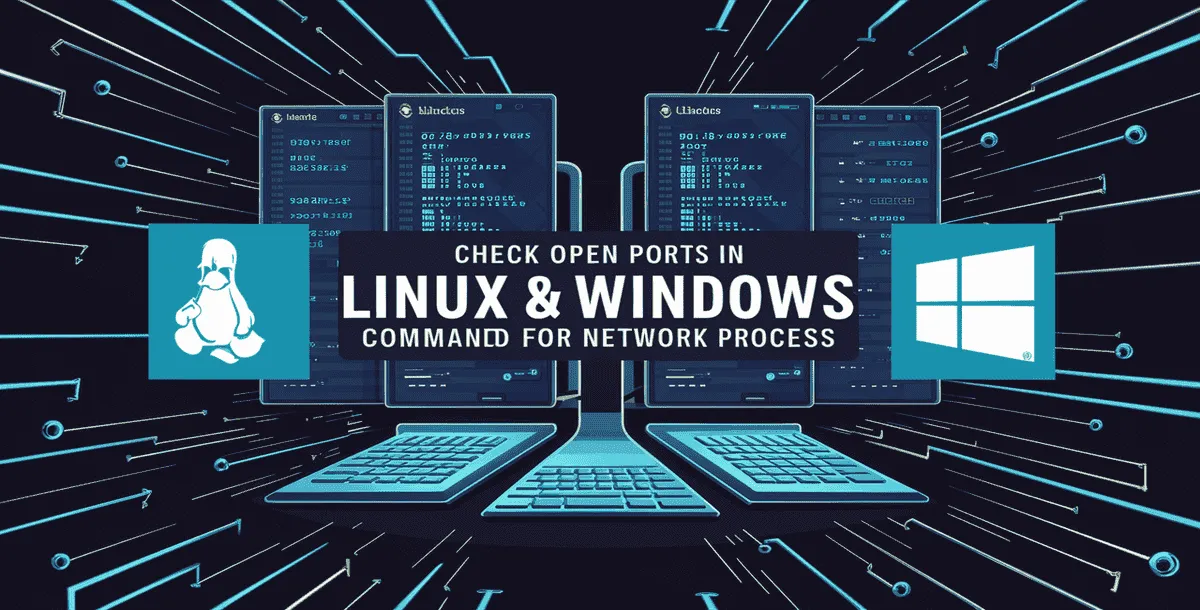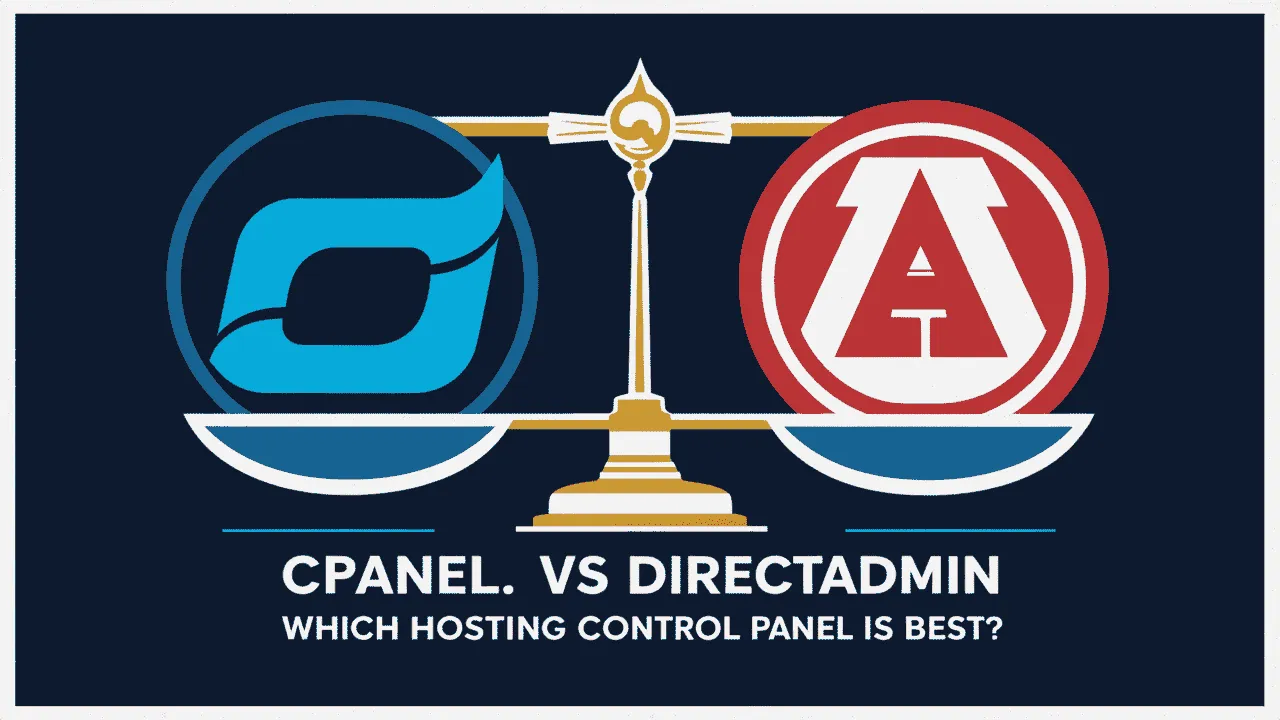Running a web hosting business in 2025 means finding tools that save time, reduce work, and make life easier. One such tool that’s getting a lot of attention is Paymenter. It’s quickly becoming the best WHMCS alternative for many web hosting providers who want a faster, simpler, and more flexible way to manage their business.
For years, WHMCS has been the popular choice for billing, support, and domain management in the hosting world. But now, many users feel it’s too complicated or doesn’t fully meet their needs. That’s why more and more people are searching for an alternative to WHMCS — and Paymenter is rising to the top.
So, what makes Paymenter the best WHMCS alternative?
First, it’s easy to use. The clean, simple interface means you don’t need to be a tech expert to get started. Everything is designed to be straightforward and efficient. Second, it’s packed with features like automation, easy integrations, and powerful tools that save time. Whether you’re just launching your hosting business or running a large company, Paymenter adapts to your needs.
This guide by Owrbit explores why Paymenter is the best WHMCS alternative. It works well with other tools, it’s customizable, and it helps you offer better service to your customers. For anyone searching for an alternative to WHMCS, this platform delivers on both performance and simplicity.
In today’s fast-moving world, finding the best WHMCS alternative isn’t just a nice-to-have — it’s a must. Paymenter provides the perfect mix of automation and user-friendliness. Many hosting businesses have already made the switch to this alternative to WHMCS, and they’re seeing great results.
Whether you’re new to the industry or you’ve been around for a while, choosing the best WHMCS alternative like Paymenter could be the smartest move you make this year. With the growing demand for better tools, it’s clear that a strong alternative to WHMCS is exactly what hosting providers need.
In short, if you’re tired of WHMCS and looking for the alternative to WHMCS or simply want to explore better options, give Paymenter a try. It’s more than just an alternative to WHMCS — it might just be the best WHMCS alternative out there for your business in 2025 and beyond.
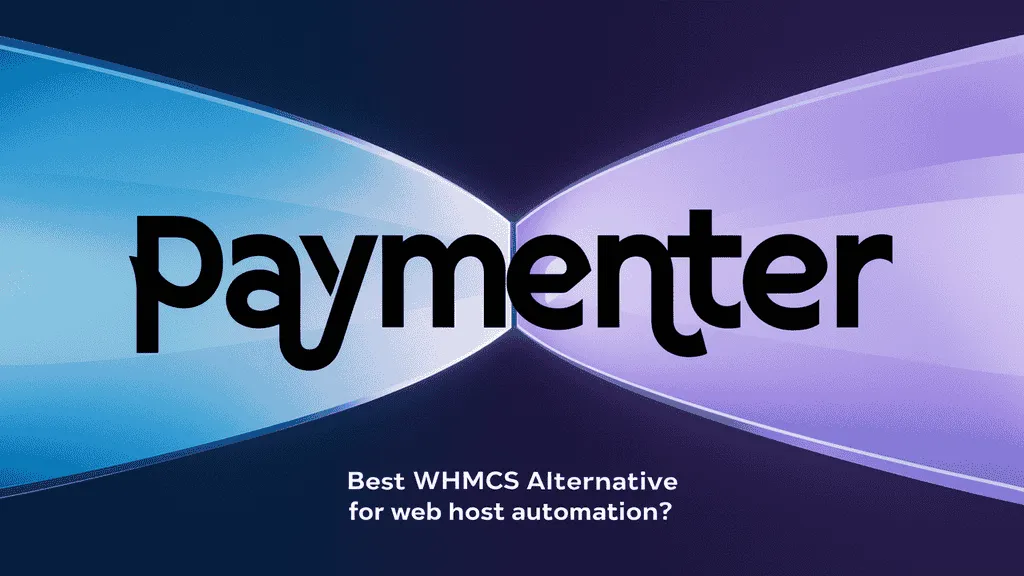
Introduction to Paymenter and WHMCS :
When running a web hosting business, having the right software to manage billing, clients, and automation can make all the difference. Two major tools that help with this are WHMCS and Paymenter. Let’s take a closer look at both platforms to understand what they offer and why Paymenter is quickly becoming the best WHMCS alternative.
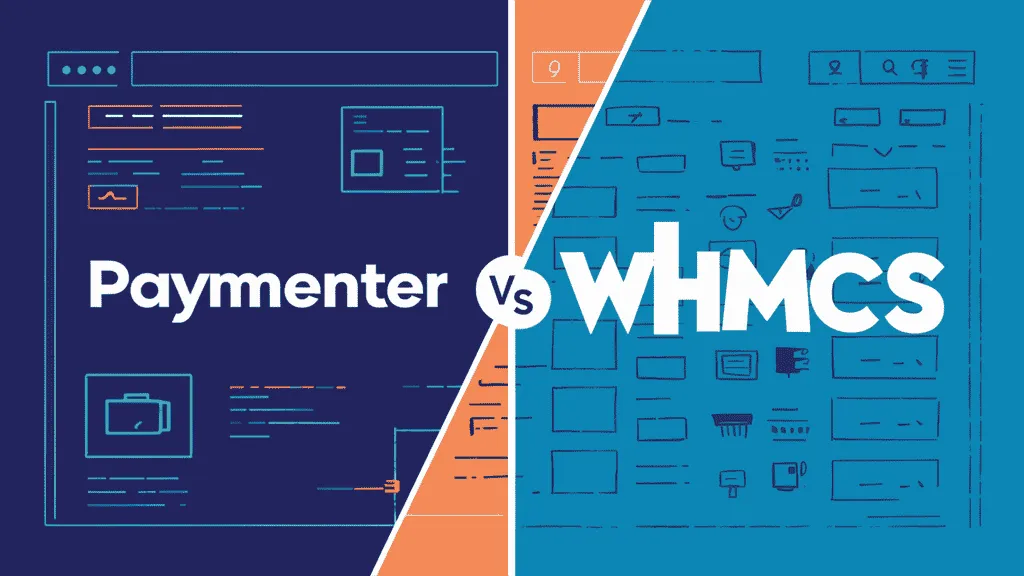
Overview of Paymenter :
Paymenter (Best WHMCS Alternative) is a modern, open-source billing and client management system built specifically for web hosting providers. It’s designed to make managing hosting services simple, automated, and efficient. With a clean interface and easy setup, Paymenter offers features like automatic invoicing, service management, and seamless integration with popular hosting control panels. Its goal is to help hosting businesses save time and reduce manual work—all while delivering a smooth experience for both owners and clients.
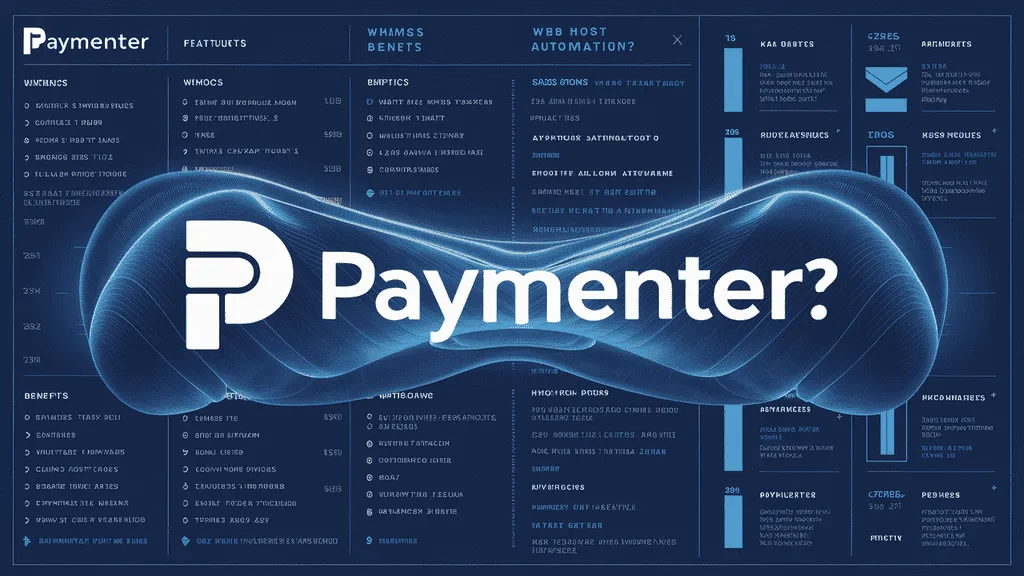
Many users are switching to Paymenter because it provides a lightweight and user-friendly solution without the high costs and complexity of older platforms. This makes it a strong alternative to WHMCS for hosting startups and growing businesses alike.
What is WHMCS?
WHMCS (Web Host Manager Complete Solution) is a long-standing platform used by hosting companies to manage billing, customer accounts, domain names, and support tickets—all from one dashboard. It has been the default choice for years due to its wide range of features and integrations.

However, WHMCS can feel overwhelming for some users. It often requires technical knowledge to customize, and its pricing model may not be ideal for smaller businesses. Because of this, many web hosts are now exploring alternative to WHMCS that offer similar features in a more simplified and affordable way—like Paymenter.
Why Choose Paymenter Over WHMCS?
As the web hosting industry grows in 2025, many businesses are rethinking the tools they use to manage operations. WHMCS has long been a popular choice, but it’s not perfect for everyone. That’s why more and more providers are turning to Paymenter as a modern and flexible alternative to WHMCS.
Here’s why choosing Paymenter over WHMCS makes sense for many hosting businesses today:
Checkout Top 5 Best WHMCS Alternative To Move After WHMCS Price Increase 2025
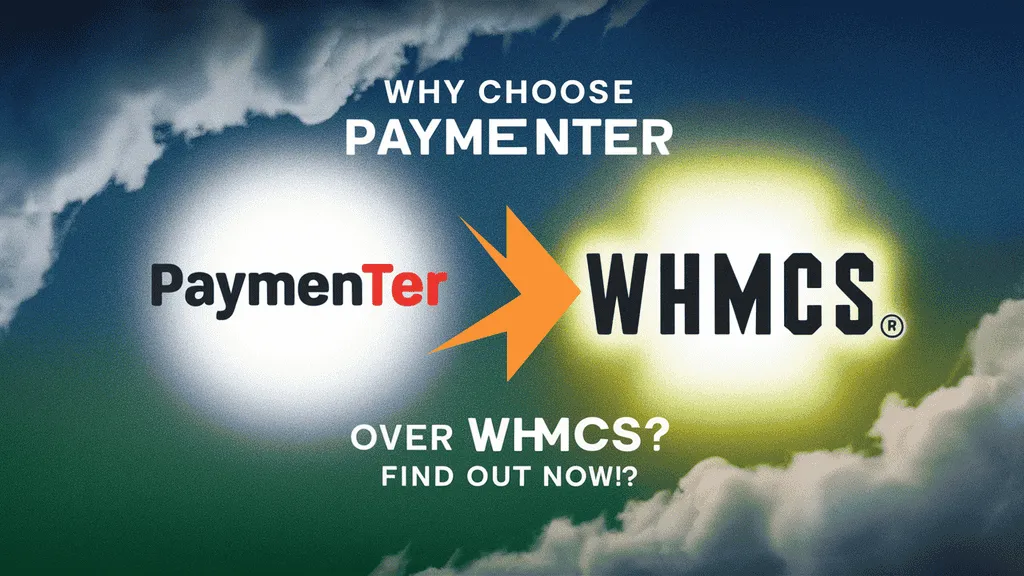
Key Differences Between Paymenter and WHMCS :
If you’re trying to decide between WHMCS and Paymenter, understanding the key differences between the two can help you make the right choice for your web hosting business. While both tools aim to simplify billing and automation, their approach, pricing, and flexibility are quite different.
Here’s a side-by-side look at the key differences:
| Feature | Paymenter | WHMCS |
|---|---|---|
| Pricing | Free & open-source | Paid with monthly license fees |
| Ease of Use | Modern, clean interface | Feature-rich but can feel complex |
| Customization | Developer-friendly and flexible | Limited without paid modules |
| Speed & Performance | Lightweight and fast | Can be slower and heavier |
| Community Support | Active open-source community | Official support with fewer custom fixes |
| Integrations | Easy integrations with hosting panels | Supports many integrations but setup can be complex |
| Automation | Built-in tools, easy to configure | Advanced but may require setup time |
| User Base | Growing rapidly in 2025 | Widely used but declining in smaller businesses |
| Ownership & Control | Full control with open-source code | Licensed, limited customization |
By understanding these differences, it becomes clear why so many businesses are considering Paymenter as the best WHMCS alternative in 2025.
Advantages of Using Paymenter for Web Hosting Management :
Paymenter is quickly becoming the preferred tool for web hosting providers looking for a smart, affordable, and user-friendly system. As one of the best WHMCS alternatives, Paymenter offers several benefits that make it stand out in the hosting industry.
Here are some key advantages of using Paymenter:

- 1. Free and Open-Source
- One of the biggest advantages of Paymenter is that it’s open-source. You can download, install, and use it without paying any licensing fees. This makes it a cost-effective alternative to WHMCS, especially for new or small hosting businesses.
- 2. Simple and Clean Interface
- Paymenter offers a clean and modern dashboard that’s easy to navigate. Even if you’re just starting your hosting business, you’ll find it simple to manage clients, services, and invoices without feeling overwhelmed.
- 3. Built-In Automation
- With Paymenter, many tasks are automated—like creating invoices, activating services, sending payment reminders, and suspending accounts for non-payment. This saves you time and reduces the chance of human errors.
- 4. Quick Integrations
- Paymenter works smoothly with popular hosting panels like Pterodactyl, DirectAdmin, and others. It’s built with developers in mind, so integration is fast and doesn’t require complicated setup like some other platforms.
- 5. Customizable and Developer-Friendly
- If you want to change how things work or add new features, Paymenter gives you full access to its code. It’s flexible and easy to customize, making it a great choice for those who want a tailored solution.
- 6. Fast Performance
- Unlike some bulky systems, Paymenter is lightweight and optimized for speed. Your dashboard loads quickly, and your customers will have a smooth experience when using your hosting portal.
- 7. Community Support
- As an open-source project, Paymenter has a growing community of users and developers. You can find help, contribute to the project, or request features—without being stuck waiting for official support.
- 8. No Unnecessary Features
- Paymenter focuses on the features that matter most to hosting businesses. It avoids extra bloat, helping you stay focused on your core operations.
If you’re looking for a simple, fast, and affordable way to manage your web hosting services, Paymenter is a strong choice. It delivers everything you need without the extra cost or complexity—making it a great alternative to WHMCS in 2025.
Key Features of Paymenter :
Paymenter offers a range of powerful features designed to streamline web hosting management without the complexity of traditional systems. Here are the main features that make it an attractive choice:
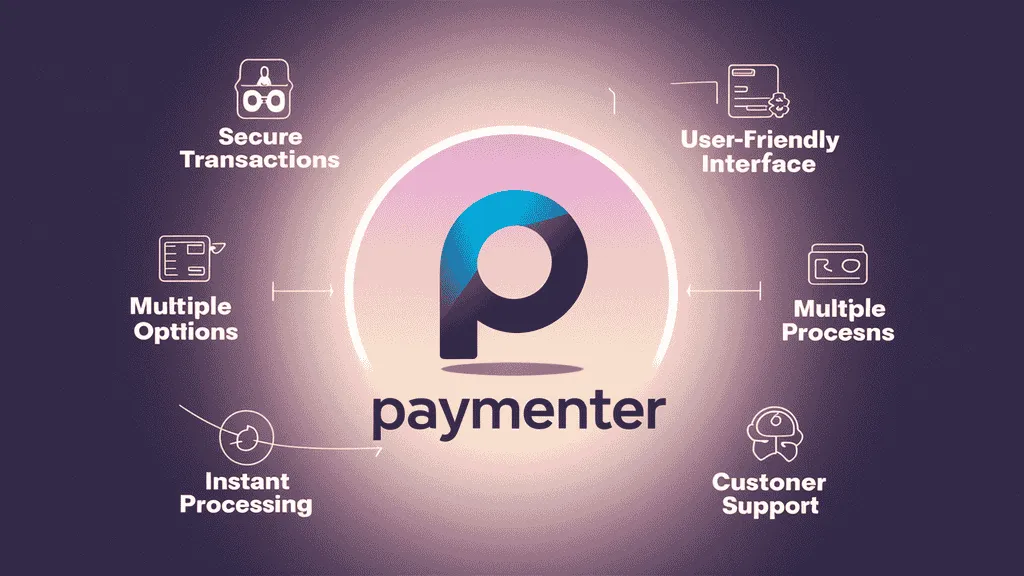
- Free and Open-Source
- Paymenter is open-source, which means you can use and modify it without any licensing fees. This not only cuts costs but also offers flexibility to tailor the tool to your specific needs.
- User-Friendly Interface
- The dashboard is designed to be clean and intuitive, making it easy for both beginners and experienced users to navigate. This simplicity helps you focus on your core business activities without getting lost in unnecessary details.
- Built-In Automation
- Paymenter comes with automation features that handle routine tasks such as invoice generation, payment reminders, service activations, and account suspensions. Automation reduces manual work and minimizes errors, allowing you more time to focus on growth.
- Quick and Seamless Integrations
- Designed with developers in mind, Paymenter easily integrates with popular hosting control panels and tools. Whether you work with Pterodactyl, DirectAdmin, or other platforms, connecting your systems is straightforward.
- Customization and Developer Flexibility
- With full access to the code, you can customize Paymenter to fit the unique demands of your business. This flexibility is especially beneficial if you require special features or integrations that aren’t available out of the box.
- Fast Performance
- Paymenter is built to be lightweight and efficient. Its fast performance ensures that both administrators and customers enjoy a smooth experience, even during high-traffic periods.
- Strong Community Support
- Being open-source means there’s an active community of developers and users constantly working on improvements. This community provides resources, updates, and troubleshooting help, contributing to a robust support network.
- Essential Feature Focus
- Unlike platforms that come with unnecessary bloat, Paymenter includes only the features that matter most for web hosting management. This focus on essential functionalities keeps the tool streamlined and efficient.
Each of these features contributes to making Paymenter a powerful yet straightforward solution for web hosting providers. If you’re seeking an alternative that simplifies management tasks while offering robust customization and performance, Paymenter stands out as an excellent option.
User Experience: Paymenter vs WHMCS
When choosing between Paymenter and WHMCS, user experience plays a major role. A clean, smooth interface can save time, reduce frustration, and make daily tasks easier. Let’s compare how both platforms perform when it comes to ease of use and overall experience.
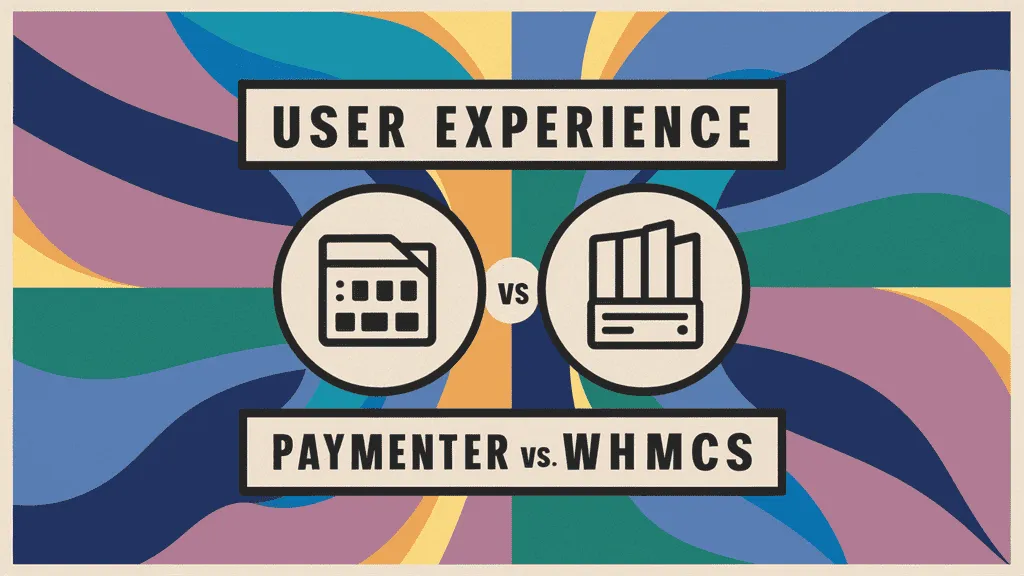
- 1. Dashboard & Navigation
- Paymenter:
- Paymenter has a modern and minimal dashboard. It’s easy to understand, even for beginners. All the important sections like clients, invoices, services, and settings are clearly laid out. There’s no clutter, so users can find what they need quickly.
- WHMCS:
- WHMCS is packed with features, but its dashboard can feel outdated and overwhelming—especially for new users. Some sections are buried under multiple menus, making it harder to access certain settings without a learning curve.
- Paymenter:
- 2. Learning Curve
- Paymenter:
- Easy to learn. Most users can set up basic functions and start managing their hosting business without needing technical training or support. This makes it ideal for small teams or solo entrepreneurs.
- WHMCS:
- Steeper learning curve. While it’s powerful, many users need tutorials or developer support to use all features correctly. Customization also often requires extra modules or coding knowledge.
- Paymenter:
- 3. Design & Look
- Paymenter:
- Clean, responsive, and modern interface. It works well on both desktop and mobile devices. The focus on a smooth design adds to the overall user satisfaction.
- WHMCS:
- Functional but less modern. Though WHMCS has improved its UI over the years, it still feels heavy and outdated compared to newer tools like Paymenter.
- Paymenter:
- 4. Setup and Configuration
- Paymenter:
- Setup is quick and straightforward. Users can get started with just a few steps and don’t need to install many extra modules. Most functions are ready to use out of the box.
- WHMCS:
- Setup takes more time and may require help from documentation or support. Configuration for automation and third-party tools can be time-consuming.
- Paymenter:
- 5. Customization Experience
- Paymenter:
- Since it’s open-source, developers can easily modify the code, change the design, or add new features without restrictions. Customization is flexible and free.
- WHMCS:
- Customization is possible but often involves paid modules or complex workarounds. Developers may find it limiting unless they’re deeply familiar with the system.
- Paymenter:
If you value simplicity, speed, and a clean interface, Paymenter provides a smoother and more user-friendly experience. For businesses looking for the best WHMCS alternative, Paymenter removes the unnecessary complexity and focuses on what matters most.
WHMCS remains a strong option for those who need every possible feature and are comfortable managing a more complex system—but it comes at the cost of usability.
How to Transition from WHMCS to Paymenter?
Thinking about switching from WHMCS to Paymenter? You’re not alone. As more web hosting providers look for simpler and more affordable tools, Paymenter is becoming a popular choice. If you’re ready to make the move, here’s a step-by-step guide to help you smoothly transition from WHMCS to Paymenter without losing important data or disrupting your services.
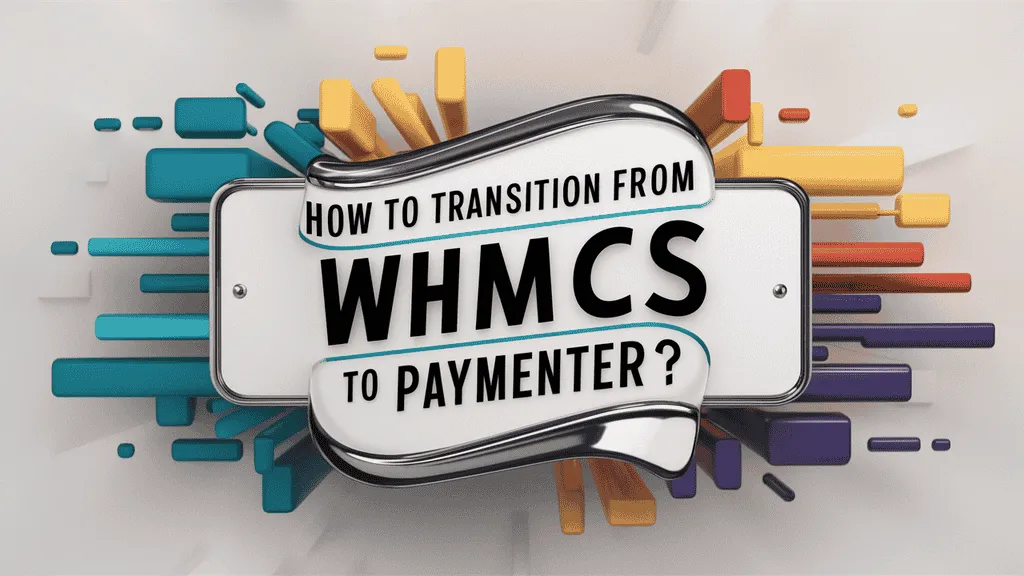
- Step 1: Plan the Transition
- Before making any changes, list out all the features you currently use in WHMCS—like invoicing, automation, client management, domain reselling, etc. This helps you map each feature to its equivalent in Paymenter.
- Also, inform your team (and customers, if needed) about the upcoming change. Choose a time when business is slower to avoid interruptions.
- Step 2: Set Up Paymenter
- Visit the Paymenter GitHub repository or official site to download the latest version.
- Install Paymenter on your server (it’s a Laravel-based app, so setup is simple if you’re familiar with PHP).
- Configure basic settings: company name, currency, timezone, and invoice format.
- Connect your hosting panel (e.g., Pterodactyl or DirectAdmin) and set up your services and products.
- Step 3: Export Data from WHMCS
- Since there is no official one-click migration tool yet, you’ll need to manually export key data from WHMCS, such as:
- Clients (with emails, names, and phone numbers)
- Services and active orders
- Invoices and payment history
- WHMCS allows CSV exports for most of this. Use WHMCS’s admin area to download the data safely.
- Since there is no official one-click migration tool yet, you’ll need to manually export key data from WHMCS, such as:
- Step 4: Import Data into Paymenter
- You’ll need to manually import this data into Paymenter using the admin panel or by writing a small script if you’re comfortable with coding.
- Tip: If you’re not a developer, you can hire a freelancer or get help from the Paymenter community via GitHub or Discord.
- You’ll need to manually import this data into Paymenter using the admin panel or by writing a small script if you’re comfortable with coding.
- Step 5: Test Everything
- Before going live:
- Create a test user and simulate a full order—from signup to payment to service activation.
- Check invoice generation, email notifications, and automation.
- Make sure all client details, orders, and services are correct.
- Before going live:
- Step 6: Switch Over and Monitor
- Once everything is tested, switch your live operations to Paymenter:
- Point your domain (e.g., billing.yourdomain.com) to the new system.
- Disable WHMCS or keep it in read-only mode for record-keeping.
- Monitor closely for the first few days to make sure everything runs smoothly.
- Once everything is tested, switch your live operations to Paymenter:
Switching to Paymenter doesn’t have to be difficult. With proper planning, basic technical skills, and some help from the community, you can move from WHMCS to one of the best WHMCS alternatives available today—without hassle or downtime.
Conclusion: Is Paymenter Right for You?
If you’re looking for a modern, cost-effective, and easy-to-use billing and automation system for your web hosting business, Paymenter is definitely worth considering. As one of the best WHMCS alternatives in 2025, it offers everything most hosting providers need—without the high costs or complexity.
Paymenter is especially ideal for:
- Startups and small hosting companies who want to avoid licensing fees
- Developers and tech-savvy users who prefer open-source flexibility
- Providers looking for a clean, fast, and lightweight platform
- Businesses tired of WHMCS’s limitations or complicated setup
However, if your business depends on highly advanced modules, legacy integrations, or specific WHMCS-only features, you may want to test Paymenter thoroughly before making the full switch.
For many users, Paymenter checks all the right boxes as a powerful alternative to WHMCS. It’s fast-growing, actively developed, and built with simplicity in mind—making it a smart choice for the future of hosting automation.
Checkout Top 5 Best WHMCS Alternatives To Move After WHMCS Price Increase 2025
Discover more from Owrbit
Subscribe to get the latest posts sent to your email.

